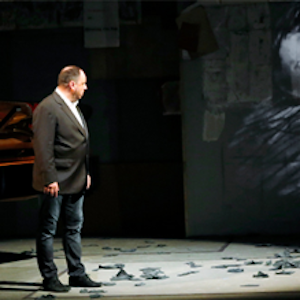In celebration of Verdi's 200th birthday in 2013, the Festival d’Aix-en-Provence produced the composer's colorful masterpiece Rigoletto for the first time in its history. Verdi expert Gianandrea Noseda conducted the London Symphony Orchestra in a production that marked the return of the Canadian stage director Robert Carsen to the festival following a 17 year hiatus. Carsen sets his interpretation of this classic opera in the cutthroat world of the circus.
Based on Victor Hugo's play Le roi s’amuse, Verdi's opera in three acts Rigoletto premiered in 1851. Similar to the play that inspired it, the opera faced censorship because of its controversial subject of libertinism at court. The opera’s tragic story revolves around the licentious Duke of Mantua, his hunchbacked court jester Rigoletto, and the jester’s beautiful daughter, Gilda.
The Duke of Mantua is a notorious playboy and merrymaker, known for seducing women of all sorts and then making fun of their husbands with Rigoletto, his jester. One evening the Duke's festivities are interrupted by the arrival of the elderly Count Monterone, whose daughter was one of the Duke’s victims. Rigoletto provokes the old count, making fun of his helplessness to avenge his daughter's honor. While he is arrested, Monterone curses Rigoletto for having mocked his righteous anger. The curse terrifies the jester because of the secret he is hiding: he has a very beautiful daughter, Gilda, who he has confined to their home to protect her, only allowing her to go out for Sunday services. But Gilda has her own secret: she has recently been charmed by a young man she met at church. The young man is none other than the Duke himself, who is unaware that she is his jester’s daughter...
In an attempt to avoid the curse, Rigoletto unintentionally brings the situation to its breaking point, and a tragedy unfolds.
Photo: © P.Berger / ArtcomArt
